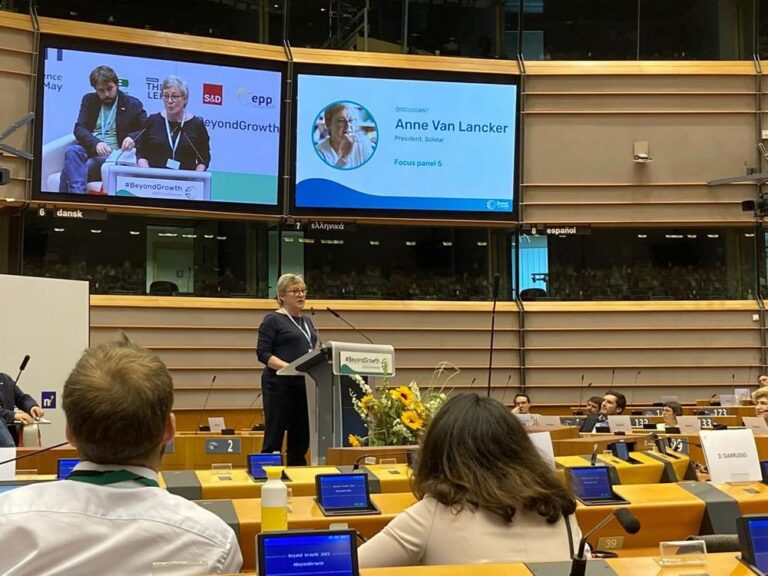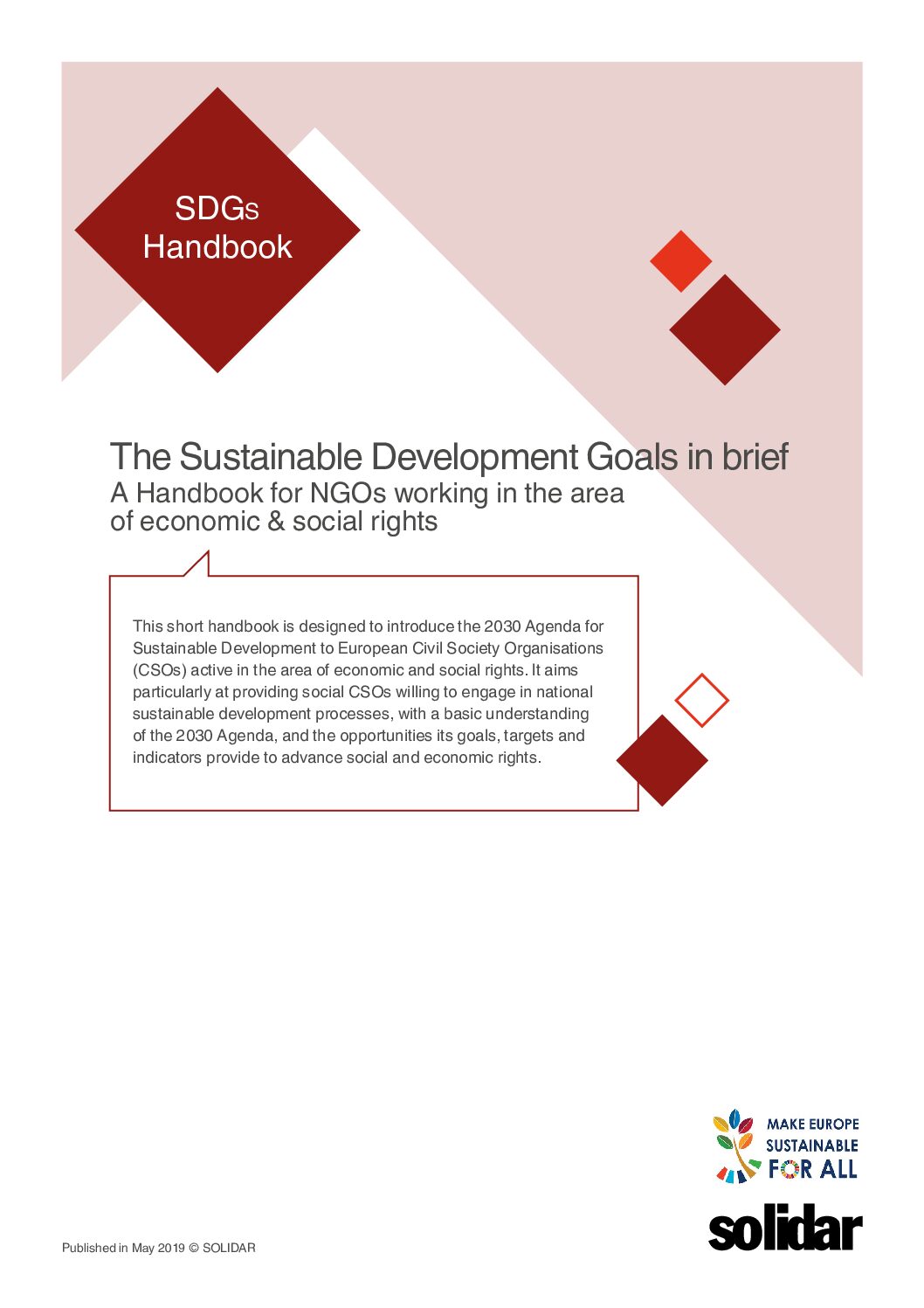Despite the European Union’s commitment to leave no one behind, millions of people in Europe are falling victim to widening inequalities, a major EU-wide report concludes
‘Falling through the cracks: Exposing inequalities in Europe and beyond’
The report entitled ‘Falling through the cracks: Exposing inequalities in Europe and beyond’, was presented on 18 June 2019 on the occasion of the European Development Days by the European-wide project Make Europe Sustainable for All (MESA) and SDG Watch Europe.
The publication gathers studies from eleven EU-wide networks, including SOLIDAR, which highlight key dimensions of inequality in thematic chapters on social protection, health, homelessness, gender, age, disability, youth, Roma, debt and tax injustice, the environment and environmental justice, and development cooperation. This analysis and evidence is complemented by country-specific reports from 15 EU countries: France, Germany, Italy, Luxembourg, the Netherlands, Austria, Greece, Ireland, Portugal, Spain, the Czech Republic, Lithuania, Poland, Romania and Slovenia.
The report clearly shows that many forms of inequalities are on the rise. Currently, economic inequalities mean that over 20% of the EU population earns less than the poverty threshold in their country, while the number of people living in income poverty in the EU has risen by over 8% since 2005.
The report charts visible links between economic inequalities, discrimination and social exclusion, both within and outside the EU, caused by unfair tax, investment and aid priorities. Discriminatory attitudes and policies often prevent people lifting themselves out of poverty. Wealth inequality, measured by the accumulated assets owned by households, is greater than income inequality and ensures that privilege and advantage are passed down from generation to generation. Inequalities within countries are often linked to the divide between rural and urban areas.
The country reports sound the alarm on the burgeoning ranks of the working poor as the rates of in-work poverty climb due to the rise of precarious work and temporary contracts – having a job is not a guarantee for a decent life. Social transfers are indispensable tools for reducing inequality and protecting the vulnerable, while social protection policies help countries recover from economic crises, the report finds.
A call for action
The failures outlined above put at risk the EU’s ability to achieve the UN’s Sustainable Development Goals, of which the EU and its member states are signatories. This is because tackling inequalities is not only a specific goal of the SDGs (SDG 10) but also because inequalities affect many of the other SDGs.
Ensuring that nobody is left behind and to achieve this by the 2030 deadline requires robust and transformational policies.

Drawing on this wealth of evidence, the document presents specific policy recommendations to reverse the negative trends and to bolster positive ones. These include:
- Introducing a basic minimum income as a matter of priority
- Ensuring equal pay for equal work for women and men
- Getting more women into senior positions
- The expansion of social transfers and social protection policies
- Tougher standards reflecting human rights norms, to tackle discrimination based on age and disability, among other factors
- Making investment and aid policies fairer
- Reforming taxation to reduce inequalities, lower emissions, to encourage more sustainable lifestyles and to do no harm in third countries
- Tackle discrimination through more robust legislation, such as the Equal Treatment Directive (proposed in 2008, but still not adopted by the Council)
- Bring all EU laws and regulations in line with the provisions of the Convention of the Rights of Persons with Disabilities (CPRD)
- Creating greater coherence between the EU’s international economic and development cooperation policies
“Falling through the cracks: Exposing inequalities in Europe and beyond” is available for download here: https://www.sdgwatcheurope.org/sdg10/




